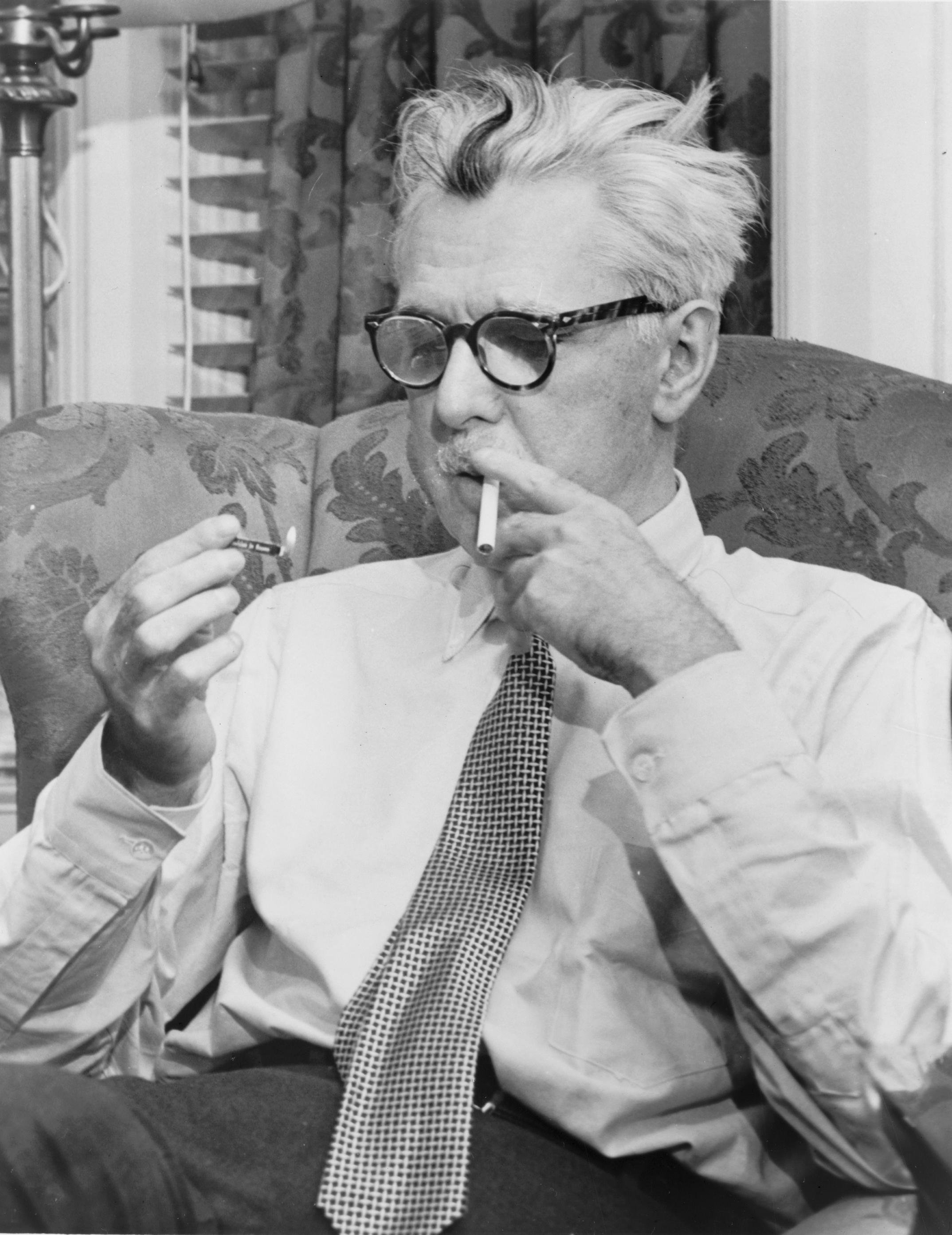„Du kannst genauso auf die Nase fallen, wie du dich zuweit zurücklehnen kannst.“
"The Bear Who Let It Alone", The New Yorker (29. April 1939); Fables for Our Time & Famous Poems Illustrated (1940)
Original engl.: "You might as well fall flat on your face as lean over too far backward."
